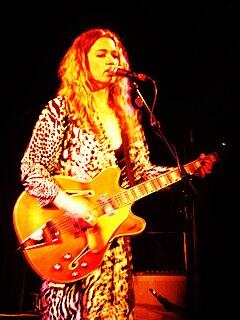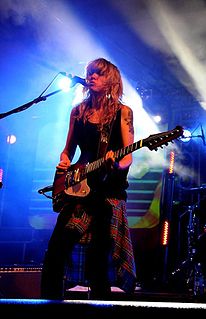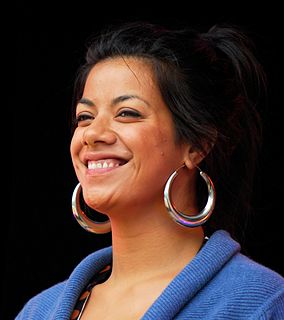Related Research Articles
Sharon Lea O'Neill is a New Zealand singer-songwriter and pianist, who had an Australasian hit single in 1983 with "Maxine" which reached No. 16 on both the Australian Kent Music Report and Recording Industry Association of New Zealand charts.
Sam McCarthy is a New Zealand songwriter and pop vocalist. He is best known for his work in Kids of 88 and Goodnight Nurse.

Julia Mary Deans is a New Zealand singer-songwriter best known as the lead singer of rock band Fur Patrol.
The Critics' Choice Prize was a New Zealand Music Awards prize awarded to New Zealand musical artists who were expected to be successful in the music industry in the future. To be eligible for the award, an artist must have neither released a studio album nor have been nominated for a New Zealand Music Award in the past.

The New Zealand Music Award for Airplay Record of the Year is a New Zealand Music Award presented annually to songs by local artists that receive high airplay. It was first presented in 2004 to Goldenhorse for "Maybe Tomorrow". No award was presented in 2005, but in 2006 it was reintroduced, with The Feelers claiming it for their single "Stand Up". Brooke Fraser's "Deciphering Me" followed in 2007, while Opshop won the award in 2008 with "Maybe". In 2009, "Always on My Mind", by Tiki Taane, was awarded the title. Stan Walker twice won the award two years in a row — in 2010 with "Black Box" and in 2011 with "Choose You", and again with "Take It Easy" in 2013 and "Bulletproof" in 2014.

The New Zealand Music Award for Best Electronic Artist is a New Zealand Music Award that honours New Zealand artists for outstanding dance-pop and electronica recordings.

Home Brew also known as Home Brew Crew is a New Zealand hip hop group.

English-Irish boy band One Direction have released five studio albums, six extended plays, seventeen singles, two video albums, and seventeen music videos and will soon release new music. They signed with Simon Cowell's record label Syco Records after being formed and finishing third in the seventh series of British television singing competition The X Factor in 2010. They subsequently signed in North America with Columbia Records. One Direction: This Is Us, a 3D documentary concert film was released on 29 August 2013 in the United Kingdom and 30 August 2013 in the United States. The film captures the band on the road during the Take Me Home Tour and documents their origins and rise to fame.

The Pacific Music Awards are an annual New Zealand music award ceremony that honours excellence in Pacific music in New Zealand. The awards honour musicians who primarily work in the Pacific Island style of music from the Cook Islands, Fiji, Niue, Samoa, Tonga, Tokelau or Tuvalu, and also in urban and gospel genre categories.
Purest Form were a New Zealand vocal harmony group. They are best known for their television commercial for the Rainbow's End amusement park and for their 1994 cover of Split Enz's song "Message to My Girl".

Best Hip Hop Artist and Best Soul/RnB Artist are two New Zealand Music Awards that honour New Zealand music artists for outstanding recordings of the genres of hip hop, and soul or R&B. The award was first awarded in 2002 as Best R&B/Hip Hop Album, and in 2003 it was called Best Urban Album. In 2004 it moved to Best Urban/Hip Hop Album. In 2017 the award was split into two separate awards: Best Hip Hop Artist and Best Soul/RnB Artist. The entry criteria were also changed to require either an album or a minimum of five single releases in the eligibility period.
Single of the Year is a New Zealand Music Award that honours New Zealand music artists for outstanding singles. For the purpose of the award, a single is defined as a song released separately from an album, either for sale or as a music video serviced to New Zealand television. The award was first awarded in 1973, following the Loxene Golden Disc award from 1965-1972. Lorde is the biggest winner in this category with four victories.
Breakthrough Artist of the Year is a New Zealand Music Award that honours New Zealand music artists for outstanding recordings. Artists who have previously been nominated for a New Zealand Music Award or has had a previous album reach the top 20 of the Official New Zealand Music Chart are ineligible. The award was first awarded in 1973 as Best New Artist.
Breakthrough Artist of the Year is a New Zealand Music Award that honours New Zealand music artists for their success in the music markets of other countries. Record sales are the main factor in determining the award, but record chart positions, sales of concert tickets and notable promotional performances are also taken into account. It was first awarded in 1984. It was not awarded in 2006. In 2005, 2008 and 2009, multiple artists received the honour.
Best Music Video is a New Zealand Music Award that honours New Zealand artists for excellence in music video production. The award was first presented in 1983 and is given to the video director. Previous winners have included feature film directors Niki Caro, Jonathan King and Chris Graham, and acclaimed artist Fane Flaws. The most wins have gone to Joe Lonie who won three time for Supergroove videos and a fourth for Goodshirt. In 2012 all three nominees went to Special Problems, the creative partnership of Joel Kefali and Campbell Hooper.
The 2016 New Zealand Music Awards was the 51st holding of the annual ceremony featuring awards for musical recording artists based in or originating from New Zealand. It took place in November 2016 at Vector Arena in Auckland and was hosted by comedy duo Jono Pryor and Ben Boyce. The awards show was broadcast live on TV3 and The Edge TV.
Best Māori Artist is a New Zealand Music Award that honours New Zealand music artists for outstanding recordings which reflect a unique Maori identity and/or are an expression of an artist’s Maori culture. The nominated work can be in te reo Maori, English or be bilingual. The award is presented annually at the New Zealand Music Awards where the winner receives a Tui trophy.
The New Zealand Music Awards for Highest Selling New Zealand Album and Highest Selling New Zealand Single are two annual awards presented to the New Zealand album and single with the highest sales in the awards period. The awards are presented annually by Recorded Music NZ at the annual New Zealand Music Awards. Nominations are not normally announced in this category.
Evan Sinton, better known by his stage name Maala, is a New Zealand singer-songwriter. He is best known for his songs "Touch" and "Kind of Love", and for coming third on the second series of New Zealand's Got Talent in 2012. In 2016, he won Best Male Solo Artist at the New Zealand Music Awards.

Best Solo Artist is a New Zealand Music Award that honours solo artists for outstanding work. The award can either apply to solo performers or a singer who performs with a band.
References
- ↑ "Category Definitions 2012". NZ Music Awards. Recorded Music NZ. Archived from the original on 13 August 2012. Retrieved 21 October 2016.
- ↑ "JUDGING". NZ Music Awards. Recorded Music NZ. Retrieved 21 October 2016.
- ↑ "1970 Winners". NZ Music Awards. Recorded Music NZ. Retrieved 18 October 2016.[ dead link ]
- ↑ "1971 Winners". NZ Music Awards. Recorded Music NZ. Retrieved 18 October 2016.[ dead link ]
- ↑ "1972 Winners". NZ Music Awards. Recorded Music NZ. Retrieved 18 October 2016.[ dead link ]
- ↑ "1971 Winners". NZ Music Awards. Recorded Music NZ. Retrieved 18 October 2016.[ dead link ]
- ↑ "1974 Winners". NZ Music Awards. Recorded Music NZ. Retrieved 18 October 2016.[ dead link ]
- ↑ "1975 Winners". NZ Music Awards. Recorded Music NZ. Retrieved 18 October 2016.[ dead link ]
- ↑ "1976 Winners". NZ Music Awards. Recorded Music NZ. Retrieved 18 October 2016.[ dead link ]
- ↑ "1978 Winners". NZ Music Awards. Recorded Music NZ. Archived from the original on 9 February 2013. Retrieved 21 October 2016.
- ↑ "1979 Winners". NZ Music Awards. Recorded Music NZ. Archived from the original on 9 February 2013. Retrieved 21 October 2016.CS1 maint: BOT: original-url status unknown (link)
- ↑ "1980 Winners". NZ Music Awards. Recorded Music NZ. Archived from the original on 9 February 2013. Retrieved 21 October 2016.
- ↑ "1981 Winners". NZ Music Awards. Recorded Music NZ. Archived from the original on 9 February 2013. Retrieved 21 October 2016.
- ↑ "1982 Winners". NZ Music Awards. Recorded Music NZ. Archived from the original on 9 February 2013. Retrieved 21 October 2016.CS1 maint: BOT: original-url status unknown (link)
- ↑ "1983 Winners". NZ Music Awards. Recorded Music NZ. Archived from the original on 30 October 2012. Retrieved 21 October 2016.CS1 maint: BOT: original-url status unknown (link)
- ↑ "1984 Winners". NZ Music Awards. Recorded Music NZ. Archived from the original on 9 February 2013. Retrieved 21 October 2016.
- ↑ "1985 Winners". NZ Music Awards. Recorded Music NZ. Archived from the original on 9 February 2013. Retrieved 21 October 2016.
- ↑ "1986 Winners". NZ Music Awards. Recorded Music NZ. Archived from the original on 9 February 2013. Retrieved 21 October 2016.
- ↑ "1987 Winners". NZ Music Awards. Recorded Music NZ. Archived from the original on 9 February 2013. Retrieved 21 October 2016.
- ↑ "1988 Winners". NZ Music Awards. Recorded Music NZ. Archived from the original on 9 February 2013. Retrieved 21 October 2016.
- ↑ "1989 Winners". NZ Music Awards. Recorded Music NZ. Archived from the original on 9 February 2013. Retrieved 21 October 2016.
- ↑ "1990 Winners". NZ Music Awards. Recorded Music NZ. Archived from the original on 9 February 2013. Retrieved 21 October 2016.
- ↑ "1992 Winners". NZ Music Awards. Recorded Music NZ. Archived from the original on 9 February 2013. Retrieved 21 October 2016.
- ↑ "1993 Winners". NZ Music Awards. Recorded Music NZ. Archived from the original on 9 February 2013. Retrieved 21 October 2016.
- ↑ "1994 Winners". NZ Music Awards. Recorded Music NZ. Archived from the original on 9 February 2013. Retrieved 21 October 2016.
- ↑ "1995 Winners". NZ Music Awards. Recorded Music NZ. Archived from the original on 9 February 2013. Retrieved 21 October 2016.
- ↑ "1996 Winners". NZ Music Awards. Recorded Music NZ. Archived from the original on 9 February 2013. Retrieved 21 October 2016.
- ↑ "1997 Winners". NZ Music Awards. Recorded Music NZ. Archived from the original on 9 February 2013. Retrieved 21 October 2016.
- ↑ "1998 Winners". NZ Music Awards. Recorded Music NZ. Archived from the original on 9 February 2013. Retrieved 21 October 2016.
- ↑ "1999 Winners". NZ Music Awards. Recorded Music NZ. Archived from the original on 9 February 2013. Retrieved 21 October 2016.
- ↑ "2000 Winners". NZ Music Awards. Recorded Music NZ. Archived from the original on 9 February 2013. Retrieved 21 October 2016.
- ↑ "2001 Winners". NZ Music Awards. Recorded Music NZ. Archived from the original on 9 February 2013. Retrieved 21 October 2016.
- ↑ "2002 Winners". NZ Music Awards. Recorded Music NZ. Archived from the original on 9 February 2013. Retrieved 21 October 2016.
- ↑ "2003 Winners". NZ Music Awards. Recorded Music NZ. Archived from the original on 9 February 2013. Retrieved 21 October 2016.
- ↑ "2004 Winners". NZ Music Awards. Recorded Music NZ. Archived from the original on 9 February 2013. Retrieved 21 October 2016.
- ↑ "2005 Winners". NZ Music Awards. Recorded Music NZ. Archived from the original on 9 February 2013. Retrieved 21 October 2016.
- ↑ "2006 Winners". NZ Music Awards. Recorded Music NZ. Archived from the original on 9 February 2013. Retrieved 21 October 2016.
- ↑ "2007 Winners". NZ Music Awards. Recorded Music NZ. Archived from the original on 9 February 2013. Retrieved 21 October 2016.
- ↑ "2008 Winners". NZ Music Awards. Recorded Music NZ. Archived from the original on 9 February 2013. Retrieved 21 October 2016.
- ↑ "2009 Winners". NZ Music Awards. Recorded Music NZ. Retrieved 21 October 2016.[ dead link ]
- ↑ "2010 Winners". NZMA. RMNZ. Archived from the original on 9 February 2013. Retrieved 21 October 2016.
- ↑ "BEST GROUP 2011". NZMA. RMNZ. Retrieved 21 October 2016.
- ↑ "BEST GROUP 2012". NZMA. RMNZ. Retrieved 21 October 2016.
- ↑ "BEST GROUP 2013". NZMA. RMNZ. Retrieved 21 October 2016.
- ↑ "BEST GROUP 2014". NMZA. RMNZ. Retrieved 21 October 2016.
- ↑ "BEST GROUP 2015". NZMA. RMNZ. Retrieved 21 October 2016.
- ↑ "BEST GROUP 2016". NZMA. RMNZ. Retrieved 21 October 2016.
- ↑ "Lorde to perform at the Vodafone New Zealand Music Awards". Radio NZ. Radio NZ. Retrieved 5 October 2017.